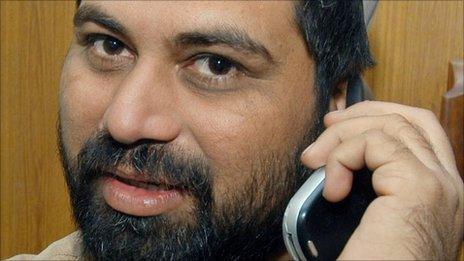Pakistan pressed over 'abducted’ activists
- Published
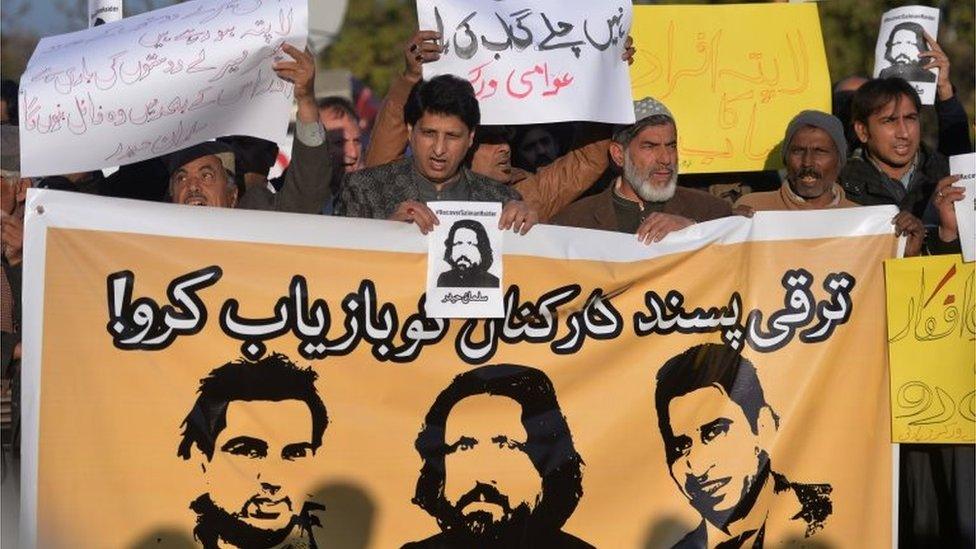
Hundreds of people have held protests across Pakistan to demand the authorities trace four activists who have gone missing in the past week.
No group has said it is holding them. All four aired views critical of the military or militancy on social media.
Pakistan's parliament expressed grave concern over their fate on Monday.
The government says it is investigating, external the case of one of the four, Salman Haider, who has campaigned against enforced disappearances in Balochistan.
Supporters of the men accuse the security services of having secretly arrested them.
Demonstrations took place in several major cities.
"This is state bullying. The people who have done this have broken the law," Senator Afrasiab Khatak, a former head of the independent Human Rights Commission of Pakistan, told protesters in Islamabad.
"This country does not belong to any general, or any bureaucrat, or a capitalist or a feudal lord, it belongs to its people. We will not remain silent."
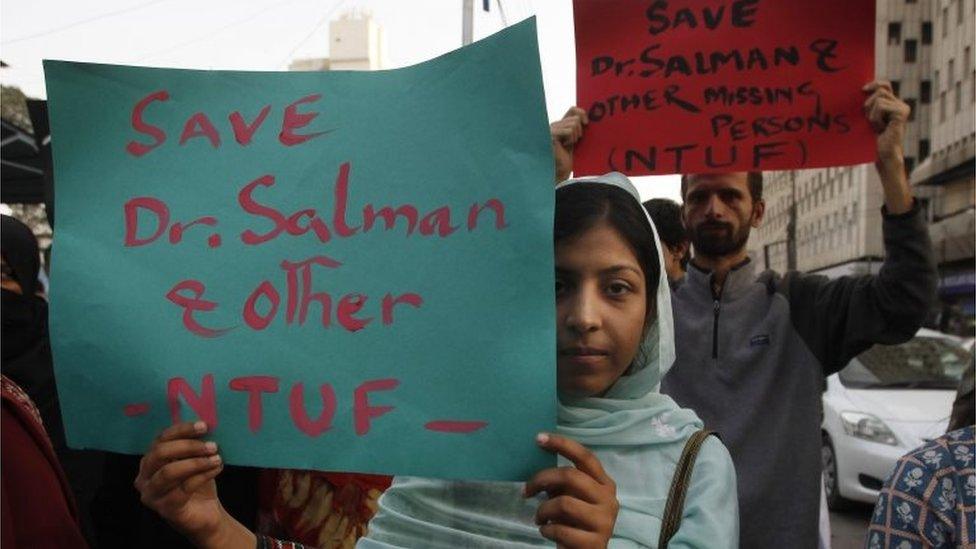
Activists see the disappearance of Salman Haider and the other men as a worrying sign

Feigning ignorance? The BBC's M Ilyas Khan in Islamabad
The disappearances have alarmed liberals involved in social activism in Pakistan, where the military has long promoted a hardline Islamist narrative as a bulwark to protect its financial and security interests.
Many believe the civilian government is feigning ignorance about the men's whereabouts, and see that as all the more reason to believe that military intelligence operatives are involved.
While pro-democracy activists have gone missing, the mosque-madrassah jihadi networks continue to occupy vast spaces in public discourse and social media in Pakistan.
And the pro-democracy lobby are coming under attack for their activism from anti-liberal accounts on social media.

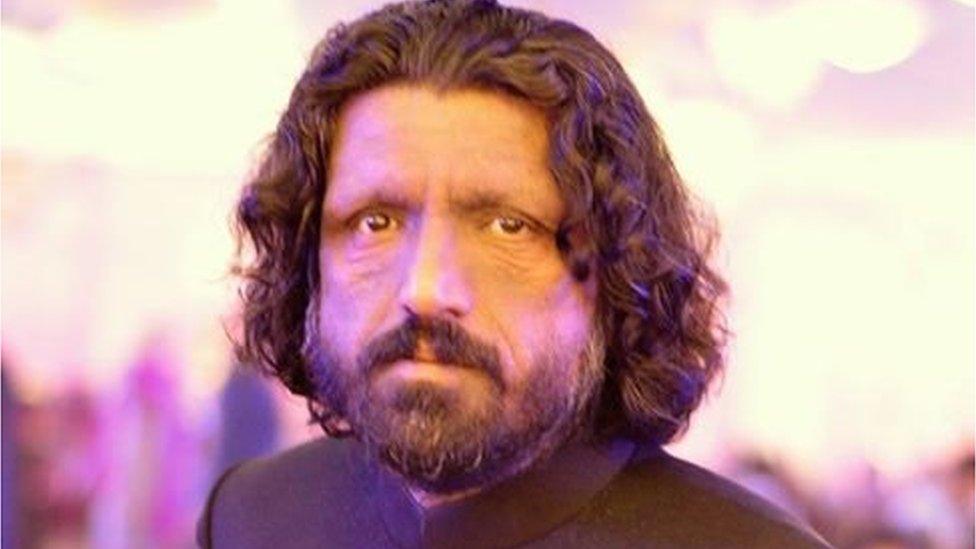
Salman Haider teaches at Fatima Jinnah Women's University in Rawalpindi
Salman Haider, a well-known poet and university professor, was last seen in Islamabad on Friday, two days after bloggers Waqas Goraya and his cousin Asim Saeed went missing in Lahore.
Another blogger, Ahmed Raza Naseer, who has polio, disappeared from his shop in Skeikhupura near Lahore on Saturday.
The Human Rights Commission of Pakistan said it was "greatly alarmed" by their disappearance.
"The events of the last week demonstrate that the dangers already extend to digital spaces," it said, adding it could not be sure if the four cases were connected.
Human Rights Watch said the government had an immediate obligation to locate the four men and ensure their safety.
"The nature of these apparent abductions puts the... government on notice that it can either be part of the solution or it will be held responsible for its role in the problem," said Brad Adams, Asia director at Human Rights Watch.
Pakistan is one of the the world's most dangerous countries for reporters and human rights activists, external, and critics of the powerful military have been detained, beaten or killed.
Leading English-language daily Dawn said that the authorities could not hide an "ugly truth", external.
"A dark new chapter in the state's murky, illegal war against civil society appears to have been opened," it said in an editorial.
- Published28 December 2016
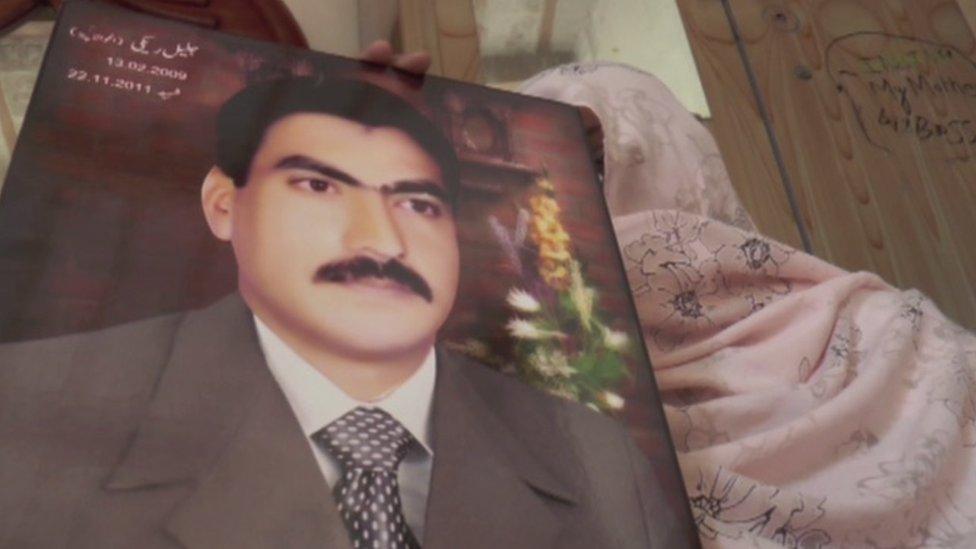
- Published6 May 2015
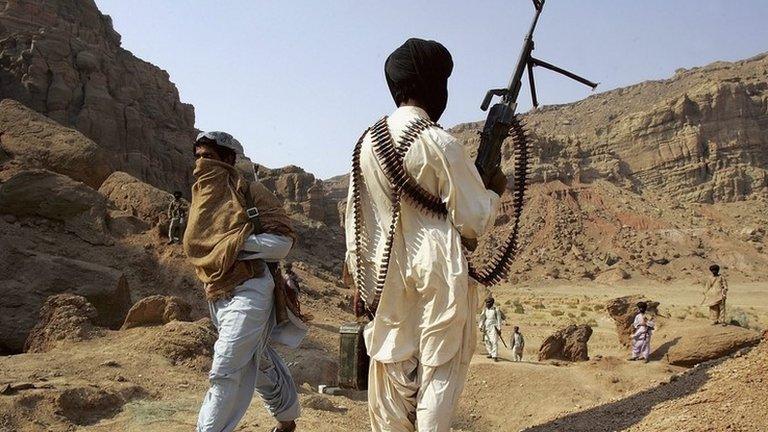
- Published24 April 2015
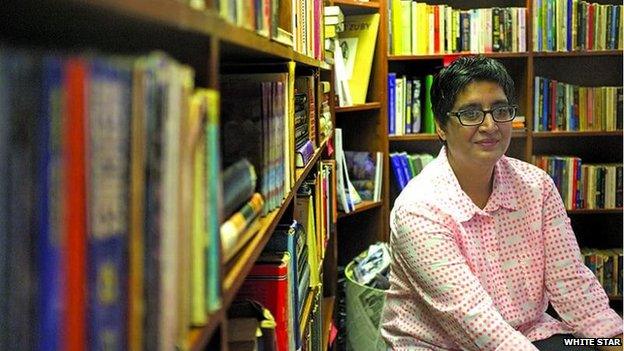
- Published24 July 2014
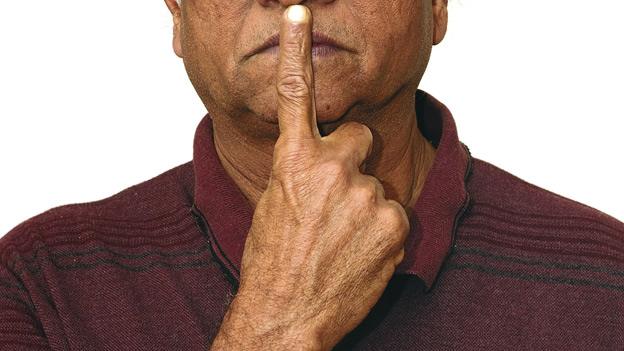
- Published22 February 2014
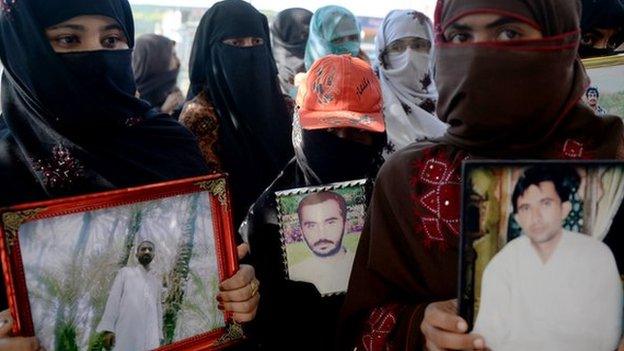
- Published31 May 2011
